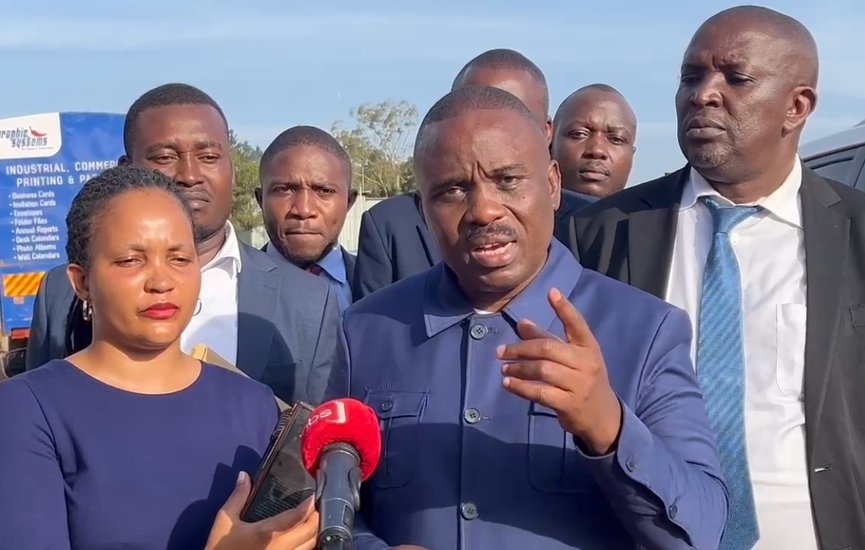Kampala, Uganda | At least three people were killed, several others injured, and property worth millions destroyed after torrential rains caused severe flooding in downtown Kampala. The tragedy has sparked outrage and renewed debate over the city’s urban planning and drainage management, with Kampala Lord Mayor Erias Lukwago accusing city businessman Hamis Kiggundu, commonly known as Ham, of contributing to the disaster through unauthorized redevelopment works on the Nakivubo Channel.
Speaking at the flooded site, Lukwago blamed Kiggundu’s controversial Nakivubo redevelopment project for obstructing water flow. “People who died today died because of Ham. Ham has blood on his hands,” Lukwago said emotionally. He alleged that sections of the drainage channel had been narrowed or diverted to accommodate Kiggundu’s commercial developments, increasing the risk of flash floods in the central business district.
The Nakivubo Channel, which carries stormwater through the heart of Kampala into Lake Victoria, has long been prone to blockages and illegal encroachments. However, recent construction activity around the Ham Shopping Grounds and Nakivubo Stadium redevelopment has intensified criticism, with urban planners and environmental activists warning that the works have disregarded building regulations and environmental safety measures.
Kiggundu has previously defended his project as part of efforts to modernize Kampala’s infrastructure, citing government approvals and claiming that his developments would improve rather than hinder drainage. Still, images of submerged streets, trapped vehicles, and distraught traders wading through waist-deep water have fuelled anger among residents, many of whom blame city authorities and private developers for negligence.
Business owners in Kisenyi, Nakivubo, and downtown Kampala reported heavy losses as water swept through shops and warehouses. Some expressed frustration that despite repeated warnings about blocked drainage channels, little action has been taken. “Every time it rains, we lose stock. The government talks, but nothing changes,” said one trader.
City authorities have since pledged to launch investigations into the incident and re-evaluate construction activities near critical drainage paths. Environmentalists are urging the Kampala Capital City Authority (KCCA) to enforce urban planning laws and halt all works that compromise water flow.
As Kampala recovers from yet another devastating flood, the tragedy has reignited calls for accountability, better urban management, and stricter regulation of large-scale private projects. The controversy underscores a larger issue: balancing modernization with environmental safety in Uganda’s rapidly expanding capital.
